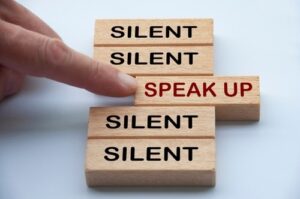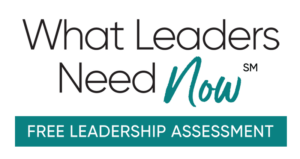As we grow through life, do we change “who we are” or do we become ourselves? I remember being asked by a potential client, “What do you do, really, as a coach?” He seemed earnest, so I answered sincerely. “I help people become themselves,” I replied. I could tell immediately that my response was not the one he was expecting. His eyes narrowed and he said quickly, “I don’t understand that.” Rather than exploring my statement, he changed the subject, and I did not push it at the time.
Today, some 15 years later, I stand by that answer. Becoming who we are is the development journey. We spend much of our lives conforming to who others think we should be. First, our parents, well-meaning as they might be, often have a clear vision for who and how they would like us to grow up to become; either in their own likeness or the persons they never had the chance to be. Our educational system has built-in programs for assessing, grading (and sometimes limiting) us, and most certainly our corporate cultures place demands on who and how we can be and act, at least during work hours which make up a large part of life as an adult. Those who have suffered the wounds of trauma have another significant layer of influence that, unhealed, causes them to be out of sync with their true nature.
In this month’s podcast, I interviewed author Maja Djikic, PhD, a psychologist specializing in adult personality development. We discussed her extraordinary new book, The Possible Self, which addresses how people change, and why they don’t change even when they appear to want to. I hope you’ll listen to my interview with Maja.
In The Possible Self, Maja makes the simple yet profound point that behavior, fueled by will, is not enough to make sustainable change. She makes the very practical case that our motivations, emotions, thoughts, and even how we carry past experiences in our bodies impact our ability to change. She offers case studies and exercises to make these points concrete. In my experience as a coach, when clients do this more comprehensive work, the real self emerges. That is why I say that good coaching helps clients “become themselves.”
Let’s look at this more closely with some examples.
I have written many times before about the danger of believing our thoughts, and the power of bringing awareness to habitual thought patterns that serve to criticize us, lock us into a pattern of perfectionism, or fill our minds with ruminations about made-up, worst-case scenarios, to name just a few examples. The work of disassembling our thoughts to reveal what may be inaccurate beliefs about ourselves can free the true self to emerge.
Day-to-day behavior is also influenced by emotions that we may not be consciously aware of in the moment. I had a client who received some feedback about the manner in which she interacted with others one-on-one. Rather than have her try to change her approach, something that she had worked on many times in the past without success, I asked her to simply become aware of where her attention was when she was interacting with her colleagues. No behavior change “goal”—just awareness. A week later, she reported that she had identified a consistent feeling, fear, that arose during exchanges with those people, one that reminded her of something in the past. This simple awareness, and the genuine ability to feel it, was transformational. She is now able to approach her colleagues literally present as her “today” self—and that changes everything.
During last month’s podcast, long-time client David Clapp of CarterBaldwin Executive Search said that executive coaching makes you a better version of yourself. I observe something that can happen to people who are generally self-aware and confident about their place in the world, successful and secure in many ways. They lose their way—a little or a lot. They respond to the obstacles and difficulties of life over time until those responses become habits; habits that, when viewed from a mirror, can evoke a strong, motivational response. The hallmark of this theme is when some or most of a client’s feedback is inconsistent with who I have begun to understand them to be—and who they know themselves to be. I’ll often ask, “Where is the real Kira? … the real Rafael?” and they know immediately where that person has been hiding—and why. From that moment of awareness, many things can happen. Some make significant behavior-based adjustments because they realize they are acting based on past limitations or beliefs that no longer hold true. To do this they must examine the thoughts and feelings that got them to this place, as I discussed in the paragraphs above. Some realize they are not in an environment in which they can be in integrity with their values and make significant changes. Others fall somewhere in the middle, optimizing to find the “better version of oneself” that Clapp talks about.
In my book, What Leaders Need Now, I define development as the process by which we cast a vision for the future that is consistent with our true nature and desires, in doing so, identify the personal stops along the way. The development journey is transformational. As T.S. Eliot said so perfectly:
We shall not cease from exploration
And the end of all our exploring
Will be to arrive where we started
And know the place for the first time. (1943)














